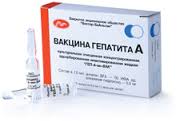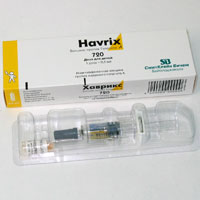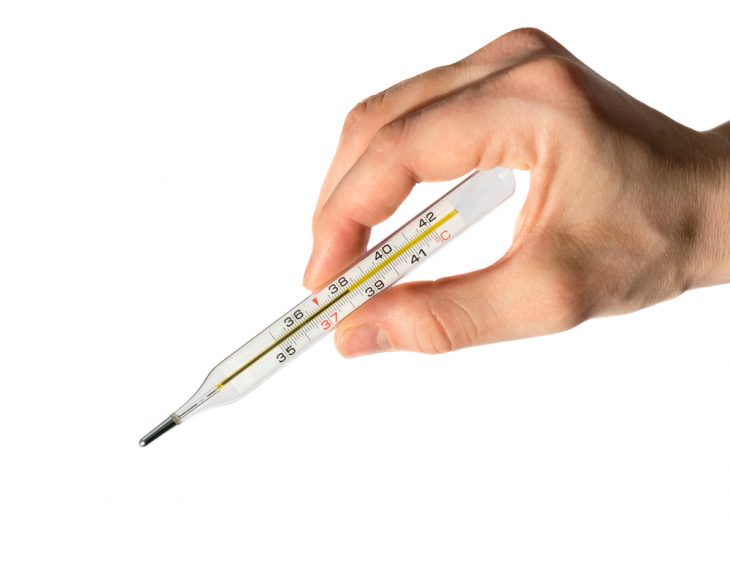- Do you need hepatitis A vaccines?
- Indications for vaccination
- Contraindications
- Vaccination scheme
- Vaccine reactions
- Summary for parents
- Which doctor to contact
Viral hepatitis A, or Botkin's disease, is an acute viral infection that causes damage to the liver cells until they are completely dead. As a result of the disease, biliary tract can be affected. Infection is transmitted across the water (plumbing or bathing in a pond), food, toys and general consumption items when in contact with a patient. We will talk about vaccination against hepatitis A in children: what are the indications and contraindications, adverse reactions and how the immunity is formed.
Do you need hepatitis A vaccines?

Is Hepatitis A Vaccination Needed?
Most often, the disease is mild, but even in these cases, the liver cells recover 6 months or more. On one patient with icteric form of hepatitis A, there are up to 10 patients with anicteric form. Such patients can be treated with diagnoses of acute respiratory infections or ARVI , intestinal infection. But they can infect other people with the virus.
Therefore, to avoid contact with a child with hepatitis is difficult. No wonder viral hepatitis A is called one of the most common intestinal infections.
The specific prevention of hepatitis A is the use of immunoglobulin with ready-made antibodies to the virus hepatitis A (that is, the donor had previously suffered from this disease). The disadvantages of this method are:
- short duration of protection (up to 1 month);
- the need for large doses;
- ability to cause allergic reactions.
But, according to doctors, vaccination against hepatitis A is the only reliable method of protection against this disease. Vaccination is used for more than 10 years. In the United States and other countries, such a vaccination is included in the vaccination schedule. Not being mandatory in Russia, it is necessary for children with the existing threat of infection.
Vaccination against hepatitis A does not protect against infection with other types of viral hepatitis (B, C, E, D, etc.).
Indications for vaccination
The risk of infection for babies when they are recommended to vaccinate:
- no less than 2 weeks before the start of school or kindergarten visits, before traveling to countries in Asia and Africa, to sea sanatoriums (in Russia, abroad);
- in chronic liver diseases;
- at hemophilia ;
- emergency prevention: in the first 10 days from the start of contact with a patient with hepatitis A (immunity is developed before the incubation period ends).
The indication for vaccination is the absence of antibodies to the hepatitis A virus in the child’s blood. An antibody test is performed before vaccination. If antibodies are detected, vaccination is not necessary: it means that the child has previously had hepatitis A, and he has strong immunity (they do not get sick again).
Contraindications
- Any acute illness;
- chronic disease in the acute stage;
- allergy to vaccine components;
- allergic reaction to the previous dose of the vaccine used.
Preparations for vaccination

Khavriks vaccine
In Russia, the following vaccines are recommended:
- HAVRIX (England) - 0.5 ml in a disposable syringe or vial; can be used from the age of one;
- AVAKSIM (France) - 0.5 ml in a disposable syringe; introduced from 12 months .;
- VAKTA (USA) - in a bottle of 0.5 ml; used from 2 years;
- GEP-A-IN-VAK (Russia) - 0.5 ml in ampoules; approved for use from 3 years.
All of these vaccines contain a killed hepatitis A virus: it cannot cause illness in a vaccinated child and cannot be transmitted from vaccinated children to others. Vaccines should be stored at a temperature of + 2- + 80 C, preventing freezing.
Vaccination scheme
The vaccine in a dose of 0.5 ml is administered intramuscularly to babies up to 1.5 years old - on the front-outer surface of the thigh, and the older children in the muscles of the shoulder. It is not recommended to inject the drug in the gluteal region and subcutaneously. In the special case (with concomitant blood disease), subcutaneous administration is permitted. Intravenous vaccine can not be administered.
Vaccination is carried out twice with an interval of 6-18 months. (depending on the type of vaccine). A single administration of the vaccine causes the formation of immunity in 7-14 days and provides protection against the disease for 1.5 years. After two doses of the vaccinated dose, good immunity is formed in 98-100% of the vaccinated, lasts up to 20 years and longer.
Hepatitis A vaccine is allowed to be administered with other vaccinations in one day (excluding BCG) or, according to the general rules of vaccination, with an interval of 1 month. after the previous one.
In children with immune disorders, a single dose of vaccination may not lead to the formation of a sufficient antibody titer: additional doses of the drug may be required.
Vaccine reactions

The vaccine is usually well tolerated. But there may be local (less than 15% vaccinated) and general (5-6%) reactions. On imported vaccine reactions are rare.
At the injection site may be noted:
- compaction;
- edema;
- soreness;
- redness.
Possible common reactions include:
- headache ;
- temperature rise;
- stomach ache;
- fatigue;
- reduced appetite;
- diarrhea ;
- nausea (vomiting);
- pains in the joints and muscles;
- skin rash (less than 1%).
Adverse reactions are mild, self pass. Severe reactions in the form of anaphylactic shock and seizures are very rare.
Summary for parents
Under the influence of the hepatitis A virus, pronounced changes occur in the liver tissue, especially in the case of an undiagnosed disease occurring under the guise of another disease. In such cases, there is no protective regime, the diet is not observed during the recovery period, which further damages the liver.
Considering the widespread spread of the disease and the preferential susceptibility of the child population to it, the formation of long-term protection after 2-fold administration of the vaccine - vaccinations against hepatitis A should be carried out for children (taking into account the evidence indicated in the article).
Which doctor to contact
In order to vaccinate a child against hepatitis A, it is recommended to contact an infectious disease specialist, because a special examination is necessary before vaccination. A pediatrician can help in this. An allergist, an immunologist, a gastroenterologist or a hepatologist will answer all the parents' questions (if the baby has liver disease). If the vaccination is carried out in a child with hemophilia, you must first consult with a hematologist.
View popular articles
Do you need hepatitis A vaccines?Do you need hepatitis A vaccines?
Is Hepatitis A Vaccination Needed?



